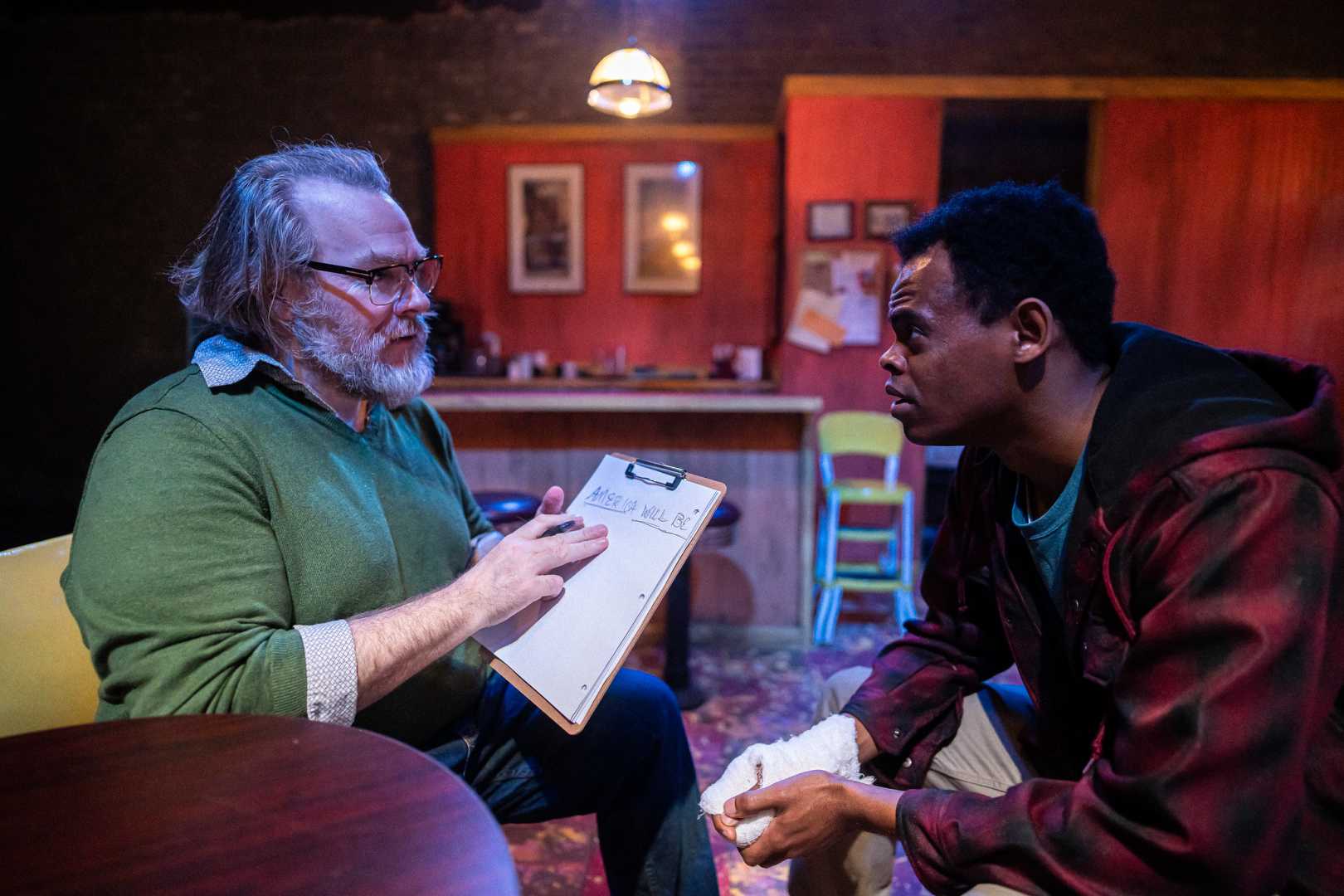Entertainment
Chicago’s ‘Superior Donuts’ Returns with Mixed Reviews

CHICAGO, IL — The comedy “Superior Donuts” is making a return to the stage, presented by The Artistic Home at the Den Theatre through Dec. 6. Originally premiering at Steppenwolf in 2008 and moving to Broadway in 2009, the play was written by Pulitzer Prize and Tony Award-winning playwright Tracy Letts.
“Superior Donuts” tells the story of Arthur Pryszbyszewski, who struggles to keep his inherited doughnut shop afloat while grappling with personal grief and past trauma. Scott Westerman plays Arthur, who finds his mundane life disrupted by Franco Wicks, played by John N. Williams, a fast-talking 21-year-old and aspiring writer. Together, they explore friendship amidst humor and chaos.
The play has been described as formulaic, echoing themes of unlikely friendships seen in various pop culture pieces. However, critics note that the relationship between the two main characters lacks depth, and significant moments often fall flat. Arthur’s character reflects on personal loss, delivering gripping monologues that captivate the audience. Yet, critics argue the chemistry between Arthur and Franco never fully develops.
The supporting cast adds to the comedic flair, including Reid Coker as Max Tarasov, who embodies a more stereotypical character on the fringes of the main story. Through their interactions, the play attempts to tackle deeper issues, including race and community dynamics, but many feel it misses the mark.
Director John Mossman effectively maintains a brisk pace throughout the performance, and Kevin Hagan’s set design authentically represents a small North Side doughnut shop. While comedy permeates the play, some scenes feel overly calculated as if prompted by an unseen laugh track. The production raises questions about race and culture within the audience’s community, striving for resonance yet sometimes veering into farce.
In a statement, Mossman highlighted the challenges faced in balancing humor with meaningful dialogue, ultimately seeking to create a relatable comedy for modern audiences.
“Superior Donuts” promises both laughter and contemplation, leaving theater-goers to ponder its reflections long after the curtain falls.












